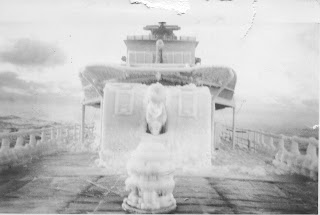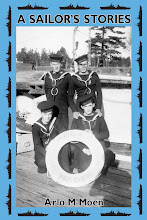The Second Printing of A SALOR'S STORIES is now being sold in most Halifax/Dartmouth Bookstores and on my new website. It is highly recommended by those who have read it. It is also available in the Public Library for those patient enough to get in line. It is a form of Memoir. I suggest you buy it because it invites more than one reading.
Clues to the content of A SAILOR'SSRORIES aand also clues to the content of my "Novel in progress" are included in this BLOG,.You can find them by following "Older posts" and the archives anhd using the back button each time. In addition, I provided links to my other BLOG, "Galley Yarns," where I put srories that I omitted from my books. Also, I included a link to my website at arlommoen.com.
May, mayhem and the IWSG
1 month ago


